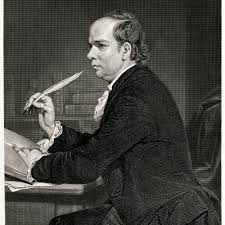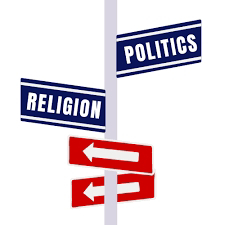THE AGE OF TRANSITION (1740-1800)
HISTORYCAL BACKGROUND
1.Decline of the Party Feud.: The contest between the Whigs and the Tories still
continues, but it is hardly of the previous bitterness. The chief reason for this change is
found in the weakness of the Tory party. In the middle of century the whigs had hardly any opposition.
2.Commercial and Imperial Expansion : Under the pacific management of the great Whig minister Walpole, and owing to the successful wars of his successors, the eighteenth century saw an immense growth in the wealth and
importance of the British Empire.
3. The French revolution : During the century new ideas were germinating; new forces were gathering strength; and the Revolution. Liberty, equity and fraternity were the wach words of French revolution.
Features of the age
1. The Double Tendency : Two movements can be clearly observedin the writing of the time.
(i)The allegiance to the old order of classicism.
(ii) The search after the new order of Romanticism.
2. The new Romanticism: The general features of the Romantic movement were:
(i) A return to Nature (not the bookish Nature).(ii) Sympathy for poor and oppressed.
(iii)A fresh interest in man's position in the world of nature. This led to great activity in
religious and political speculation.(change the thought).
(iv)A revolt against the conventional literary technique, such as that of the heroic
3. The New Learning: The middle and later stages of the eighteenth century show a minor Renaissance that touched nearly all Europe. The increase in wealth and comfort coincided with a general uplifting of the standard of the human intellect particularly In France.
In England the new learning took several channels. In literature we have the revival of
the Romantic movement, leading to (a) research into archaic literary forms, such as the ballad, and (b) new editions of the older authors, such as Shakespeare and Chaucer.
4.The New Philosophy : The spirit of the new thinking, which received its consummate
expression in the works of Voltaire, was marked by keen scepticism and the zest for
eager inquiry. Scotland very early took to it, the leading Scottish philosopher being
5.The Decline of Political Writing : With the partial decay of the party spirit the
activity in pamphleteering was over; poets and satirists were no longer the favourites of
Prime Ministers. Walpole, the greatest of contemporary ministers, openly despised the
literary breed, for he did not need them. Hence writers had to depend on their public,
THE REACTIONARY SCHOOL 🏫
Johnson has a faithful chronicler in Boswell, whose Life of Samuel Johnson
makes us intimate with its subject to a degree rare in literature. But even the prying zeal
Born : Lichfield, son of bookseller.
Education: Oxford
He had skin disease
He tried school - teaching, with no success; married a woman twenty years older than himself.
All his tricks of humor his benevolence; his physical aberration, his guzzling, his grunts, grimaces, puffing and wallowing, Tory prejudices.
Works
1. Essay on Beswell's Life of Johnson.
3. London
4. Irene
5. The Gentleman 's Magazine
6. The life of savage
7.The rembler
8. The spectator
His style
- Miseries and indignity for poor scholar.
- Fighting every step with bitter tenacity.
- All his tricks of humour-
- his bearishness, his gruff good-will, his silent and secret
- benevolences; his physical aberrations--his guzzlings, his grunts, his grimaces,
- puffings and wallowings; his puerile
1. James Thomson
- Born: Kent
- Works: Winter (1726),
- The seasons (1730),
- Liberty (1735).
- "The praises of Liberty were condemned harbour spiders, and to gather dust."
- Born: probably at Pallas(Ireland). He was the son of the poor but admirable curate of the village.
- Works: The Deserted Village (1744): in this poem, as he deals with the memories of his youth, the pathetic note is more freely expressed.
- "Laws grind the poor and ricok h people men make the laws."
- The Gold - natur'd man (1768),
- Conquer (1773),
- The citizen of the world (1759).
OTHER TRANSITION POSTS
- Born: London
- Education: Cambridge
- Works: ode on a Distant Prospect of Eton College (1747),
- Pindaric odes (1757),
- The progress of poesy.
"His mind had a, large grasp; his curiosity was unlimited and his judgment cultivated; he was a man likely to love much where he loved at all, but he was fastidious and hard to please. "
- Johnson
- Born : Chichester
- Education: Oxford
- Works: Persian Eclogues (1742),
- Odes(1746),
- Ode to Evening (unrhymed Verse)
THE NEW SCHOOL 🏫
Bruns, We can say that the Romanticism is come.
Works: Volume of poems (1786),
The Scots Musical Museum,
Tam o' Shanter
Features of his poetry
- Lyrics
- Human emotions a precious and imperishable utterance,
- Egoistic
- The poet's political and religious views
"The real lunguvege of men in a state of vivd sensation".
- Works: Political sketches (1783),
- Song of innocent (1789),
- The book of Thel (1790),
- The French Revolution (1791).
- Pamela / Virtue Rewarded (first English novel) 1740,
- Clarissa Harlow (1747-48),
- Charles Grandison (1753-54)
Features of his novel
- Moral purpose,
- Minute details,
- Characterization,
- Lacks distinction.























Comments
Post a Comment